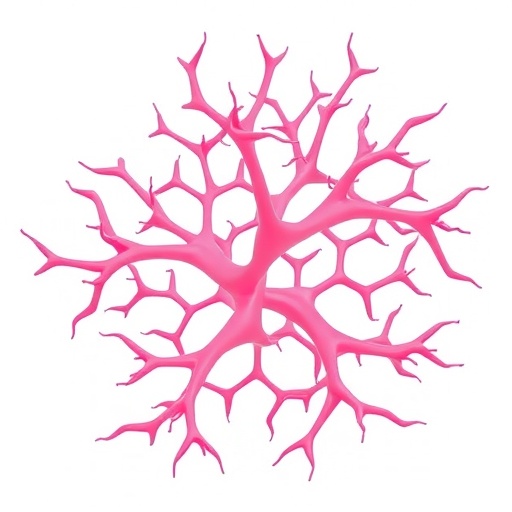In the face of increasing salinity in agricultural lands, the quest for innovative solutions to enhance plant growth has gained unprecedented urgency. Recent research conducted by Keskes and colleagues sheds light on innovative techniques for optimizing spore production of a biofertilizer based on the microbial species Bacillus cabrialesii HB7. This study presents promising findings that could significantly impact agricultural practices, especially in saline-affected regions.
.adsslot_k2nGfANi8x{ width:728px !important; height:90px !important; }
@media (max-width:1199px) { .adsslot_k2nGfANi8x{ width:468px !important; height:60px !important; } }
@media (max-width:767px) { .adsslot_k2nGfANi8x{ width:320px !important; height:50px !important; } }
ADVERTISEMENT
Additionally, the indigenous characteristics of Bacillus cabrialesii HB7 lend themselves to synergistic interactions with plant roots, promoting uptake of essential nutrients and water. This is particularly vital under saline stress conditions where solute concentration can impair plant growth. The researchers have detailed the biochemical pathways involved, highlighting how these microorganisms can potentially mitigate salinity effects that have crippled crop yields in numerous regions worldwide.
Furthermore, the potential applications of Bacillus cabrialesii HB7 extend beyond saline conditions. The enhancement of nutrient availability can lead to improved crop yields across various environmental contexts, making it an adaptable biofertilizer choice for farmers. As agricultural systems face the dual challenge of climate change and soil degradation, the role of beneficial microbes in sustainable agriculture cannot be overstated.
The implications of this research for biofertilizer production are manifold. By optimizing spore production, the researchers are paving the way for larger-scale production processes that can meet the demands of a global food supply system. Economically, this could also lead to reduced costs for farmers and greater accessibility of biofertilizer options that are both effective and sustainable.
One of the key findings of the study is the impact of spore-induced resilience on plant development. Evidence suggests that plants inoculated with Bacillus cabrialesii HB7 exhibit enhanced physiological traits, including increased root biomass and improved leaf water potential. These traits collectively contribute to better stress tolerance, allowing plants to thrive even under adverse salinity conditions.
Additionally, the researchers have emphasized the importance of integrating this biofertilizer within established agricultural practices. The compatibility of Bacillus cabrialesii HB7 with existing cropping systems can facilitate smoother transitions to more sustainable farming practices. This aligns with a global shift towards eco-friendly farming that prioritizes the health of both crops and the ecosystems in which they grow.
On the broader environmental front, deploying biobased fertilizers such as that derived from Bacillus cabrialesii HB7 can help reduce reliance on chemical fertilizers. This transition not only supports soil health but also minimizes the ecological ramifications of traditional agriculture, which often leads to nutrient runoff and the degradation of aquatic ecosystems.
As this area of research expands, the efforts to leverage microbial biofertilizers will no doubt continue to gain traction. Given the increasing climate variability and its damaging impact on agriculture, the innovations explored in this study on Bacillus cabrialesii HB7 stand at the frontier of agricultural biotechnology. The resilience provided by such microbial technology could provide a robust solution to some of the most pressing challenges faced by farmers globally.
In conclusion, the optimization of spore production of Bacillus cabrialesii HB7 represents a significant advancement in the field of agricultural microbiology. By addressing plant growth under saline stress, this research offers new avenues for enhanced agricultural productivity and sustainability. As the agriculture sector strives to adapt to changing environmental conditions, findings from such studies will be critical in informing sustainable farming practices and ultimately ensuring food security for future generations.
In summary, as researchers continue to explore the capabilities of Bacillus cabrialesii HB7 and similar organisms, it becomes clear that the integration of microbial solutions forms a crucial part of the sustainable agricultural landscape. Innovations like these are not merely beneficial but essential in the quest for an environmentally-friendly future in farming.
Subject of Research: Optimization of spore production of Bacillus cabrialesii HB7 biofertilizer for plant growth under saline stress.
Article Title: Spore production optimization of a biofertilizer based on Bacillus cabrialesii HB7 for enhancing plant growth under saline stress.
Article References: Keskes, S., Ben Khedher, S., Masmoudi, F. et al. Spore production optimization of a biofertilizer based on Bacillus cabrialesii HB7 for enhancing plant growth under saline stress.
Int Microbiol (2025). https://doi.org/10.1007/s10123-025-00692-1
Image Credits: AI Generated
DOI: https://doi.org/10.1007/s10123-025-00692-1
Keywords: Bacillus cabrialesii, biofertilizer, plant growth, saline stress, microbial biotechnology, sustainable agriculture.
Tags: agricultural practices for salinityBacillus cabrialesii HB7controlled experiments for spore cultivationenhancing plant growth in saline soilsinnovative solutions for saline agriculturemicrobial ecosystem in rhizospherenutrient availability for Bacillus growthoptimizing biofertilizer productionsaline stress relief in agriculturesoil health and microbial activityspore production optimization techniquestemperature and pH effects on spores





